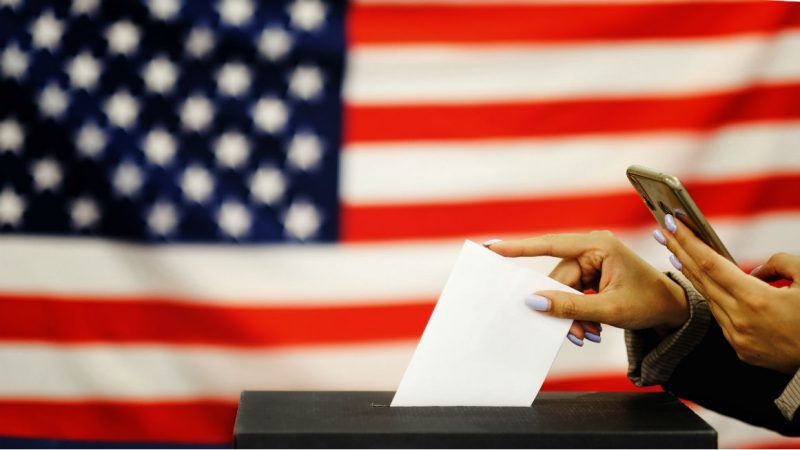Privacy for Rights Isn't a Trade Americans Should Be Forced To Make
Should participation in an election hinge on a voter's identity being made public? Of course not.

While some voters proudly display campaign yard signs or bumper stickers, many others keep their electoral choices to themselves.
Why? That's none of your business. Nor is it the business of the federal government.
Sure, many elected officials would love to know the names of everyone who voted for their opponents. But does that justify eliminating the secret ballot? Should voters have their names, addresses, occupations, and employers published online alongside every vote they've ever cast? Should the right to vote be contingent on a voter's identity being made public?
Of course not.
But federal law requires precisely such a tradeoff when it comes to the exercise of a related constitutional right: the First Amendment right to donate to a political campaign.
Under current law, a person who gives more than $200 to a candidate has her name, address, occupation, employer, and the precise amount she gave made publicly available on the internet. Anyone can track her and her politics. The potential for this information to be misused to target private citizens is very real, and the chilling effect caused by the reasonable fear of such misuse is well-acknowledged by the courts.
Candidates at the federal level raise millions of dollars from thousands of supporters. Does the fact that Jane Doe, the high school teacher who lives on 123 North Street in a heavily pro-Trump school district, gave $300 to a Democratic presidential candidate really need to be public information? Or does that information serve only to perpetuate abuse from her political opponents?
The $200 threshold hasn't been adjusted, even for inflation, in over 40 years. It is well past time to raise it significantly.
Recent news highlights how disclosure of campaign contributions can be abused to target private citizens. Rep. Joaquin Castro (D–Texas) tweeted the names of constituents who donated to President Trump's campaign. Predictably, some of those people were harassed and boycotted. The actor Eric McCormack requested on Twitter that someone print a list of those attending a Trump campaign fundraiser in Beverly Hills "so the rest of us can be clear about who we don't wanna work with." McCormack's actions drew comparisons to the Hollywood blacklist of alleged Communists.
Equally alarming are calls to mandate disclosure for nonprofit organizations engaged in issue advocacy.
In many cases, calls for nonprofit donor disclosure come from sitting lawmakers who want to know who is funding advocacy that they disagree with. In New Jersey, for example, several powerful lawmakers proposed a disclosure mandate for certain nonprofits. Why? The Senate President, a political enemy of Governor Phil Murphy, was angry with a group that supported the Governor's budget, and that group did not voluntarily expose its supporters. So the Legislature decided to force many nonprofits to disclose. Groups across the ideological spectrum warned that the state's retaliatory bill would chill advocacy, but it still became law. Now, the American Civil Liberties Union and Americans for Prosperity are suing.
In San Francisco, the Board of Supervisors recently declared the National Rifle Association a "terrorist organization." A former Republican congressman countered by suggesting that left-leaning groups are the real terrorists. In this climate, should politicians be telling supporters of such groups that they have no right to privacy?
At the federal level, sponsors of nonprofit donor disclosure bills rail against groups they oppose when touting their proposals. As Senate Minority Leader Chuck Schumer (D–N.Y.) put it years ago, "the deterrent effect" of forcing your political opponents to expose their supporters, "should not be underestimated."
Some advocates of nonprofit disclosure believe that "transparency" in any context is an unalloyed good. To be sure, government transparency does benefit democracy. But nonprofit organizations are not the government, and nonprofit supporters should not be forced to sacrifice their privacy rights.
The United States boasts one of the most robust civil societies in the world. Don't put that at risk in order to serve the shortsighted interests of politicians.


Show Comments (27)